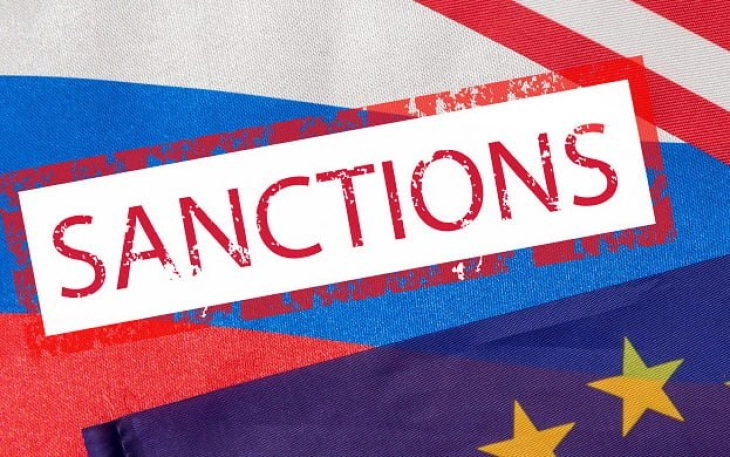EU adopts 12th sanctions package against Russia including diamond ban
- The European Union has formally adopted a 12th package of sanctions against Russia over its war against Ukraine, EU member states announced on Monday.

Brussels, 18 December 2023 (dpa/MIA) - The European Union has formally adopted a 12th package of sanctions against Russia over its war against Ukraine, EU member states announced on Monday.
The latest round of sanctions introduces a ban on the import, purchase or transfer of diamonds from Russia and tightens the existing oil price cap for Russian oil, a press release said.
"With this 12th package, we are putting forward a robust set of new listings and economic measures which will further weaken Russia’s war machine," EU foreign affairs chief Josep Borrell said.
"Our message is clear," Borrell stated. "We remain steadfast in our commitment to Ukraine and will continue to support its fight for freedom and sovereignty."
The formal approval follows last week's political agreement by EU leaders.
The new import ban on diamonds from Russia is to apply as of January 2024 to natural and synthetic diamonds. Russian diamonds processed in other countries and jewellery with Russian diamonds will be subject to the sanctions progressively starting in March 2024.
A traceability mechanism for the enforcement of the new measures is to be set up.
The new EU ban on diamonds is part of efforts by the G7 group of leading economies to cut global trade in Russian diamonds short.
In contrast to Britain, the EU had yet to introduce an import ban on diamonds. The main reason for the delay has been opposition from Belgium. The port city of Antwerp has been one of the world's most important diamond trading centres since the 16th century.
Russia, in turn, is the world's largest producer of rough diamonds. In 2021, the state diamond miner Alrosa had revenues of 332 billion roubles (around $3.6 billion).
To improve the effectiveness of the oil price cap, the information sharing mechanism is to be strengthened to better identify "vessels and entities carrying out deceptive practices, such as ship-to-ship transfers used to conceal the origin or destination of cargo," a statement said.
The oil price cap was originally introduced around a year ago with the aim to force Russia to sell oil to customers in other countries for a maximum of $60 per barrel or 159 litres, but it has often been criticized as ineffective.
The latest set of punitive economic measures includes a requirement for EU exporters of "particularly sensitive goods and technology" to contractually prohibit re-exportation to Russia when trading with other countries.
This is meant to help avoid the circumvention of sanctions.
The 12th package of EU sanctions on Russia since February 2022 also adds additional products like chemicals, lithium batteries, machine tools and machinery parts to the list of restricted items.
Additionally, 29 entities are to be subject to sanctions for "directly supporting Russia’s military and industrial complex." These organizations are either Russian or "belong to third countries involved in the circumvention of trade restrictions," a press release said.
Next to economic sanctions, around 100 individuals with ties to the Kremlin will be subject to asset freezes in the EU and will be barred from travelling to and through the bloc.
The new restrictive measures will enter into force after the publication of the legal text.
Photo: MIA Archive







